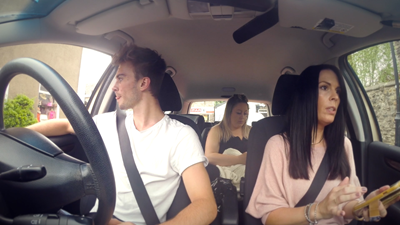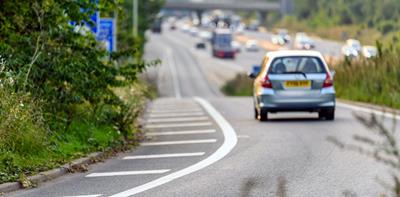
If you’re planning to get behind the wheel of a new car this year, then there are a few decisions you’ll need to make.
One of these includes whether you want to buy your new car outright, or lease it instead. Leasing used to be relatively rare in the UK, but recently it has become a much more popular option and can work particularly well for those on a budget.
However, there are plenty of different factors to consider before you sign on the dotted line.
Leasing a car
If you decide to lease a car, you’re essentially borrowing it for an extended period of time, perhaps for two or three years.
Initially you will need to pay a deposit for the vehicle, followed by monthly rental payments, and then when you reach the end of the term, you hand the car back.
Advantages of leasing
Probably the biggest plus point for leasing a car, is that it’s much easier to regularly change your vehicle.
Every couple of years you can return the old car to the dealership and switch to a brand new one, without having to worry about the rigmarole involved in finding a buyer for your old car and negotiating a good price on a new one.
There’s also a financial advantage to leasing. Some people will find it much easier to budget for those monthly leasing payments rather than needing to save up to buy a vehicle. Plus it may also be easier to arrange a car leasing deal than car finance if your credit record isn’t perfect.
Disadvantages of leasing
However, there are a also few downsides that you need to bear in mind.
Perhaps the most significant is that while you are spending that money each month to lease the car, you never actually own anything at the end of it. As such, it can be viewed as an expensive way to arrange a new vehicle.
There are also a number of restrictions placed upon you by the dealer leasing the vehicle. For example, there will be a limit on how many miles you can drive each year, with charges to pay if you should exceed this limit. There will also be charges to meet for any damage beyond expected wear and tear. So, make sure you understand the deal in all of its detail.
You also generally won’t be able to tailor the car to fit your own preferences. For example, you won’t be able to change the sound system or opt for a different type of tyre trim, which depending on how attached you are to your car, may or may not be an issue.
It’s important to understand too that it will be your responsibility to maintain the car during your lease, including paying for any repairs, as well as services and MOTs, if applicable.
Buying a car
Alternatively, you could opt to drive away from the dealership behind the wheel of a car that you own.
The number of people that do this these days is increasingly small, with 92% of private cars bought on finance in 2021.
Advantages of buying a car
If you buy the car outright, then it is your property from day one. As such you have a valuable asset to your name. Unlike with leasing, where those monthly payments don’t result in you actually owning anything at the end of the term, the car is your property.
You can therefore sell it at any point you choose, or adjust it as you see fit, whether that’s going for a different colour or updating some feature of the car to better meet your needs.
You may also be able to part exchange it for your next car, which can help to reduce the purchase price.
What’s more, there aren’t any restrictions on your annual mileage, beyond those agreed with your car insurer. So, if you end up spending more time on the road than expected, there won’t be any additional charges to worry about, so long as you still fall within the limit on your car insurance policy.
Disadvantages of buying a car
Depreciation is a big concern for any car owner. This is how the value of the vehicle falls over time. Simply driving a new motor off the dealer’s lot will see its value fall immediately which makes buying a brand new car a less attractive option for many.
There’s no set formula for calculating depreciation and some cars lose their value at a faster rate than others. But it will have an impact on how much money you receive if and when you decide to sell the car. This is likely in turn to affect how much you have to spend on your next car.
There’s no such issue when leasing a car of course, as the depreciation is the dealer’s problem, not yours.
Buying a car can also be challenging financially. You either need to have the money upfront for the car, or have a decent enough credit rating that you can take out a loan to cover the purchase price.
An alternative
Personal contract purchase (PCP) is an increasingly popular method of paying for a new car, and it works as something of a halfway house between leasing and the more traditional purchase.
With a PCP deal, you pay a deposit for the car you want, followed by monthly payments for a set period, typically of around three years.
Once you reach the end of that set period you can make a ‘balloon payment’ and take outright ownership of the car, or hand it back to the dealer and move onto a new deal.
As with a typical leasing deal, you will have to stick to certain mileage limits, but if you fall in love with the car you have the option of making it your own.
While this can be an excellent option, it’s really important that you check the small print of your contract before signing up, so that you understand what charges you may have to pay, and what it is likely to cost you in order to take full ownership of the car at the end of the term.
Go to Solved to read more about driving, the rules of the road and road safety.


